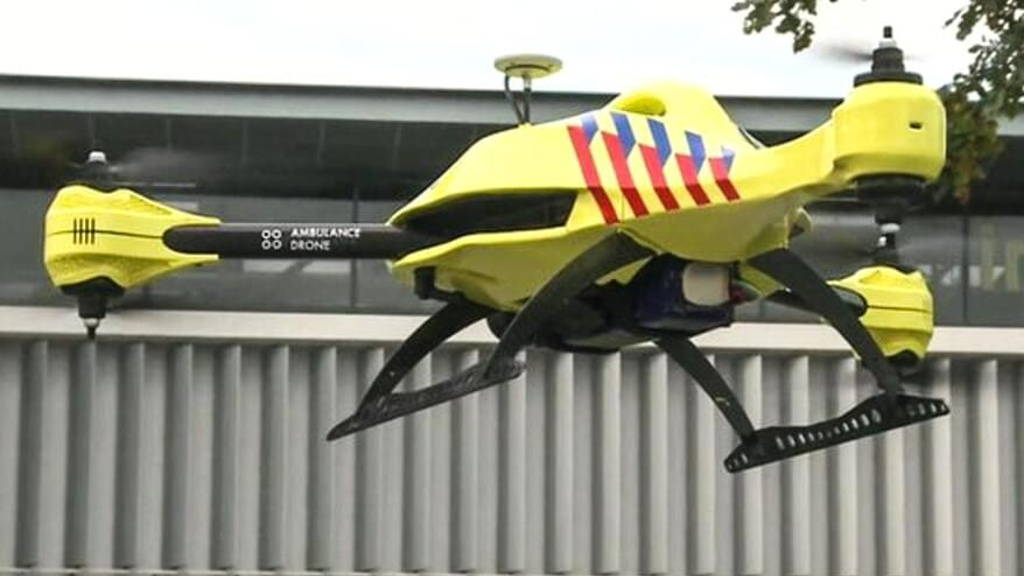“This study clearly shows that unmanned aircraft, drones, show great potential in being able to deliver a defibrillator long before an ambulance arrives, particularly in remote areas,” says Andreas Claesson, paramedic and lead researcher at Karolinska Institutet’s Centre for Resuscitation Science. The results of the study have recently been published in the respected medical periodical JAMA. The project was financed with a grant from the Stockholm County Council Innovation Fund.
The drone, which was sent from Älmsta (Norrtälje municipality) rescue services, had a response time from alarm to being airborne of only three seconds and an average time from alarm to arrival at the scene of cardiac arrest of approximately five minutes, 16 minutes shorter than was stated in the ambulance records.
“In areas with longer ambulance response times of up to 30 minutes, the chances of surviving a cardiac arrest are tiny,” explains Mr Claesson. “Drones able to deliver defibrillators can reach the patient inside the first few minutes and are thus a new and important complement to existing emergency services. With an early shock from a defibrillator within the first 3-5 minutes after cardiac arrest, up to 70 per cent of patients can survive the event.”
Last October, ICT&health wrote about Unicef using drones do deliver medication in hard to get to areas in African countries. This particular UN project will explores whether a small unmanned aerial vehicle, or UAV, could deliver HIV test samples more efficiently than land transport in rural Malawi.
Ambulance-like drone
The specially adapted ambulance-like defibrillator-equipped drone has been developed in partnership with engineers at FlyPulse AB, Trollhättan. For the present study, the drone was dispatched and automatically flown out of view of the pilot within a radius of 10 km. The drone was test-flown to the exact destination to which an ambulance had driven on 18 incidents of cardiac arrest between 2006 and 2013 in the Norrtälje municipality in Sweden; their respective arrival times were then compared.The drone, which was sent from Älmsta (Norrtälje municipality) rescue services, had a response time from alarm to being airborne of only three seconds and an average time from alarm to arrival at the scene of cardiac arrest of approximately five minutes, 16 minutes shorter than was stated in the ambulance records.
Great potential of drones
An important part of the study is that the research team was given permission by the Swedish Transport Agency and the Swedish Civil Aviation Administration to fly out of sight and were therefore able to demonstrate the great potential that drones have to save lives in the event of cardiac arrest.“In areas with longer ambulance response times of up to 30 minutes, the chances of surviving a cardiac arrest are tiny,” explains Mr Claesson. “Drones able to deliver defibrillators can reach the patient inside the first few minutes and are thus a new and important complement to existing emergency services. With an early shock from a defibrillator within the first 3-5 minutes after cardiac arrest, up to 70 per cent of patients can survive the event.”
Last October, ICT&health wrote about Unicef using drones do deliver medication in hard to get to areas in African countries. This particular UN project will explores whether a small unmanned aerial vehicle, or UAV, could deliver HIV test samples more efficiently than land transport in rural Malawi.






